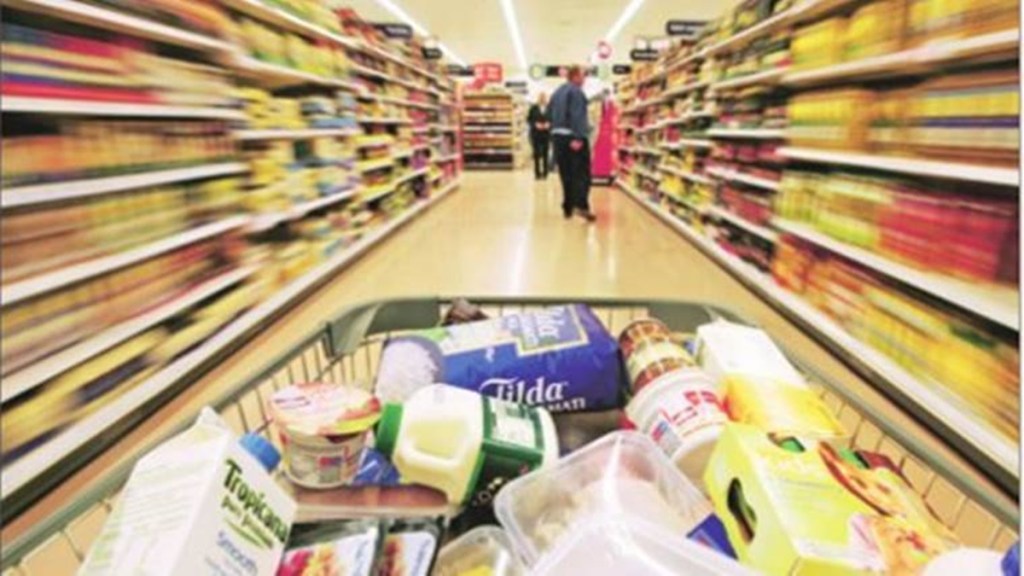The pace of investment activity in the domestic fast-moving consumer goods (FMCG) and retail sectors in the first quarter of calendar year 2023 has been slower compared to the same period in previous years, data from Venture Intelligence shows. But the tide could turn as the domestic market recovers from a rural slowdown and organised players continue to get bigger, experts tracking the market said.
“The last two-three years have been fairly hectic from an investment perspective in the consumer sector. Large players have become even more organised thanks to a shift in preference for branded products and the consolidation led by the Covid-19 pandemic. At this stage, transactions are happening, but mostly by those companies that are keen to grow quickly. Deal activity will increase as the broader consumer market recovers from a rural slowdown,” Dhanraj Bhagat, partner at Grant Thornton Bharat LLP, said.
Among firms that have been aggressive with acquisitions and strategic investments over the last few years include players such as Reliance Retail, Aditya Birla Fashion, Wipro Consumer, Dabur, ITC, Hindustan Unilever, Emami and Marico. Reliance Retail, in particular, has been fast in picking up brands as it looks to take on incumbents in FMCG.
During Reliance Retail’s Q4 results on Friday, its CFO Dinesh Taluja said that the company would continue to scout for acquisitions as it sought to rapidly expand its footprint in India’s consumer market. Since announcing its FMCG foray in August last year, Reliance Retail through subsidiary Reliance Consumer Brands has acquired labels such as Sosyo, Campa Cola and Raskik in beverages; Maliban in biscuits; and Lotus Chocolates and Toffeeman in confectionary.
Venture Intelligence data for Q1 of 2023 shows that private equity (PE) and venture capital (VC) transactions for the domestic FMCG and retail sectors cumulatively touched just $74 million across six deals amid a funding winter and valuation mismatch.
This is below the deal activity seen in the March quarters of last two calendar years – $146.2 million in Q1 of 2021 and $179 million in Q1 of 2022 – as the pandemic led to a rapid consolidation of the market.
The March quarter of CY20 predictably saw the deal activity fall as the first wave of the pandemic had struck by then. But prior to the pandemic, PE-VC deal activity was decent at $116 million in Q1 of 2019, Venture Intelligence data shows.
Similarly, mergers & acquisitions (M&As) numbered six deals in total across FMCG and retail during the March 2023 quarter, with the announced value of three transactions pegged at $32 million only. Venture Intelligence takes into account only those transactions whose deal size has been disclosed by the acquirer.
When compared with the previous years, the slowdown in investment activity so far this year becomes clear. Barring Q1 of 2021, when the announced value of M&A transactions stood at $21 million, the figures for the other three years are higher than the quarter under review.
The first quarter of 2022, for instance, saw consumer M&A transactions touch $92 million, the highest in the last five years. The M&A deal activity in Q1 of 2020 and 2019 touched $38 million and $43 million, respectively.
Also read: Importing goods for first time? Here’s your quick guide on how to import via sea route
Last week also saw Bengaluru-based Wipro Consumer Care pick up its fourteenth brand – Brahmins, which is a Kerala-based packaged foods maker. This follows its acquisition of Nirapara, another Kerala-based packaged foods player, from KKR, in December.
“In Kerala, Brahmins is a strong heritage brand leading the spice and ready-to-cook category with a significant consumer recall. We intend to make this (our 14th acquisition) as successful as our previous ones,” Vineet Agrawal, CEO of Wipro Consumer Care and Lighting, and managing director, Wipro Enterprises, said. Wipro Consumer Care’s previous acquisition include Glucovita energy drink and the Yardley personal care brand, among others.
The March quarter of the 2022-23 financial year (Q4FY23) could see FMCG companies report strong volume growth after nearly three quarters of decline, as raw material prices moderate and consumer demand begins to look up. Gross margins are also likely to improve in Q4, with some companies such as Marico and Godrej Consumer expecting “reasonable growth” in operating profit and margins for the period.

